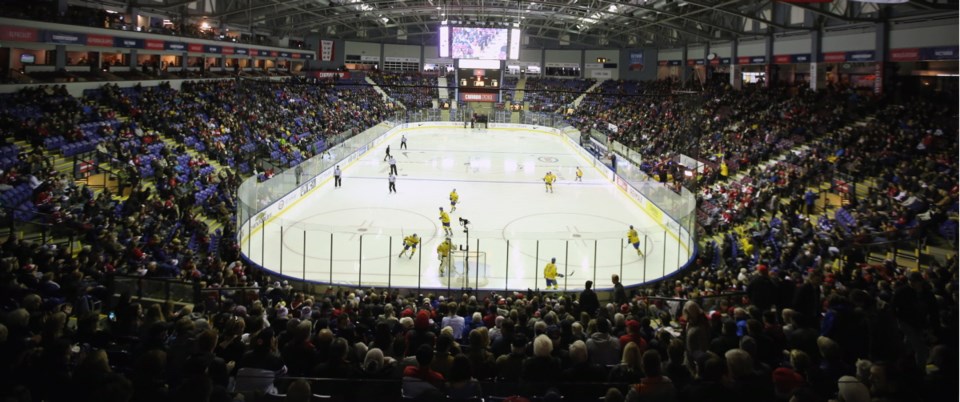If there are no fans, it could be no go for the Western Hockey League.
Commissioner Ron Robison said the league will need minimum 50 per cent capacity in its arenas, including Save-on-Foods Memorial Centre for the Victoria Royals, for the 2020-21 season to be economically viable amid the pandemic.
“We are a ticket-driven league and we need to have spectators in order to make it work,” Robison said during a virtual press conference Thursday.
“If we can’t get to a certain spectator level, we will not be in a position to start play.”
But that is contingent on health authorities in B.C., Alberta, Saskatchewan, Manitoba, Washington and Oregon each giving their approval. B.C. currently bans gatherings of more than 50 people. The WHL’s B.C. Division includes teams playing in Victoria, Langley (Vancouver Giants), Kelowna, Kamloops and Prince George.
“I recognize there are many leagues, not just hockey, that are dependent on receipts at the gate to keep them going,” said B.C. health officer Dr. Bonnie Henry.
“I can’t say right now if having fans in the seats will be possible in the fall. Those things are being looked at around the world and we will be looking at them here in Canada and B.C., as well. I can’t predict what we’re going to be like in the fall. But it is hopeful that will be an option at some point.”
Robison has had discussions with Lisa Beare, the provincial cabinet minister responsible for sport. “[Beare] was very receptive to our return-to-play document and has undertaken to review the matter internally with B.C. health authorities,” Robison said. But B.C. health minister Adrian Dix sounded a note of caution. “Most sports that depend on gate receipts are severely affected by the limits we have on gatherings right now,” Dix said.
“There is no clear idea when such limits will be lifted.
“The impact of that on sports leagues like the WHL and communities like Prince George, Victoria, Kamloops and Kelowna and others across Western Canada and the country is significant.
“We understand the impact on sports teams and arts groups and others, but we see the sacrifices people have to continue to make by not being able to see family members in care and not being able to do all kinds of things. These are the realities of the times we are in,” Dix said.
“People in B.C. love the WHL, but the rules have to be applied fairly and to everybody. They are there for the safety of everybody. It’s not to ruin anybody’s fun or anybody’s organization. We are in a world pandemic.”
Robison must deal with this issue across four provinces and two U.S. states. That’s what makes the process so complex and intertwined for the WHL. Each jurisdiction is at different stages of the pandemic, particularly Washington state and Oregon.
“We will work through them on an individual basis,” Robison said.
“Everyone understands how flexible we need to be regarding the different circumstances in each of the locations.”
The WHL announced a tentative start date of Oct. 2, but that may be optimistic. “We may have to make adjustments based on our discussions with the various health authorities,” Robison said.
He said the league can fit in a full 68-game regular season with a start as late as early December. If the start date is pushed back, he said, the league would “absolutely” consider a schedule with more inter-divisional games. He also said the playoffs could be modified and the dates of the Memorial Cup adjusted.
“Everything is open for discussion. We are committed to having a season. The timing of that is out of our control,” Robison said.
“It may not be until August that we know what our schedule will look like.”
Another issue is the Canada-U.S. border, which is closed to all but essential travel to at least July 21. The closure is being reviewed on a month-by-month basis.
Potential extensions would affect the five WHL U.S. Division clubs and Canadian teams with American players.
“We are monitoring the border situation very closely,” Robison said. “It is fluid. It’s a critical piece to the puzzle.”



